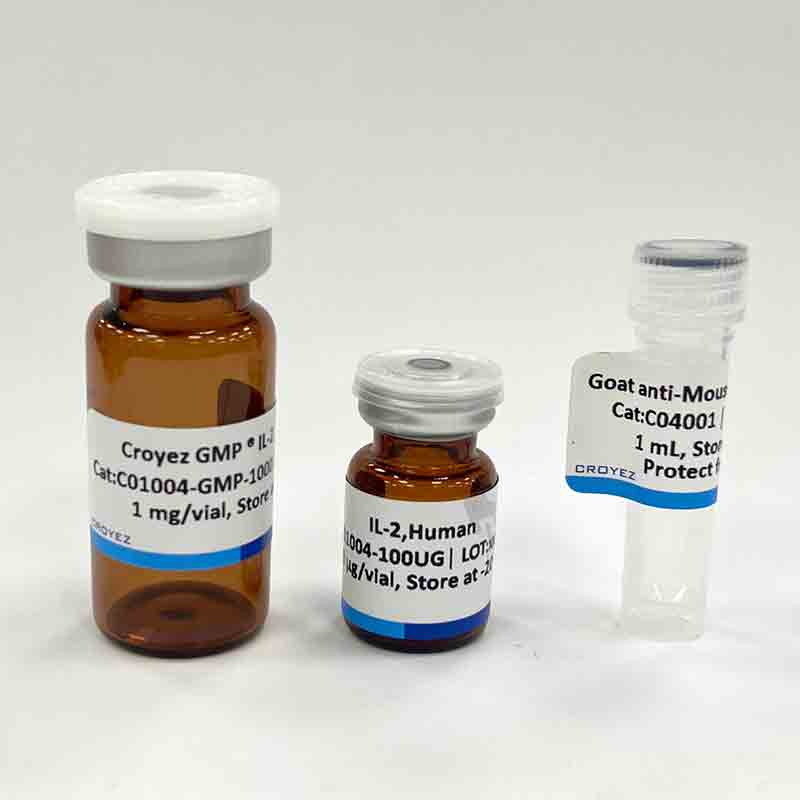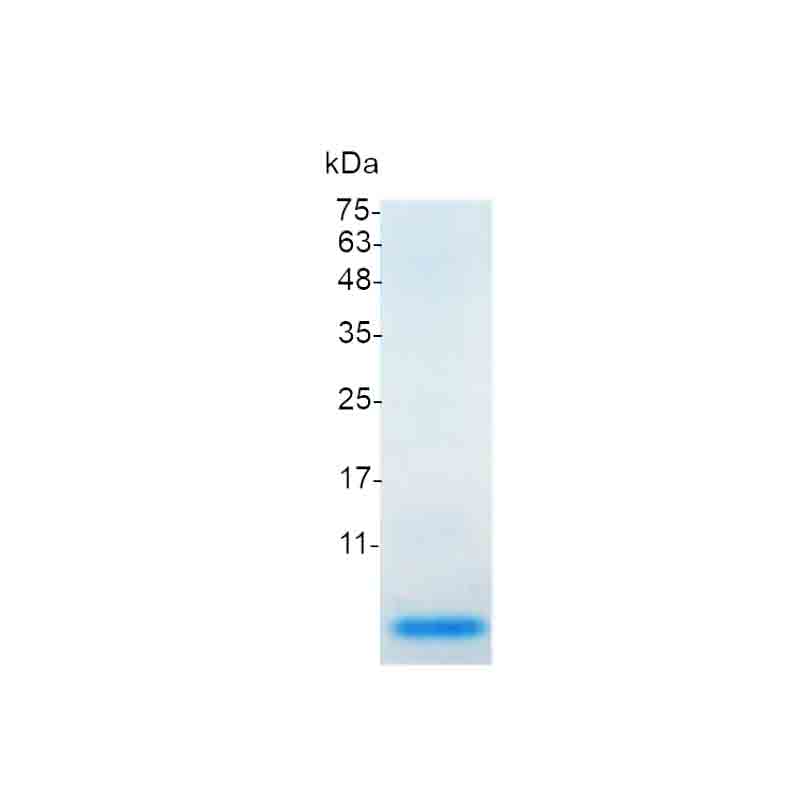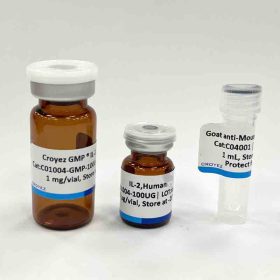CCL3, Human
Add to cart
CCL3 is belonging to the CC chemokine family. CCL3 participates in activating and recruiting cells, such as lymphocytes, monocytes, and granulocytes during acute inflammation. In addition, CCL3 can enhance IFN-γ secretion from activated T cells and thus induces Th1 response, thereby to regulating leukocyte migration. It is reported that CCL3 is involved in susceptibility of HIV infection and disease progression of AIDS.
Sequence:
ADTPTACCFSYTSRQIPQNFIADYFETSSQCSKPGVIFLTKRSRQVCADPSEEWVQKYVSDLELSA
Source:
Escherichia coli
Endotoxin Test:
<0.1 EU per 1 μg of the protein by the LAL method.
Activity:
Measure by its ability to chemoattract BaF3 cells transfected with human CCR5. The ED50 for this effect is <10 ng/mL.
Purity:
>98% as determined by SDS-PAGE. Ni-NTA chromatography
Formulation:
The protein was lyophilized from a solution containing 50 mM Tris and 150 mM NaCl, pH 8.5.
Reconstitution:
It is recommended to reconstitute the lyophilized protein in sterile H2O to a concentration not less than 100 μg/mL and incubate the stock solution for at least 20 min to ensure sufficient re-dissolved.
Storage:
Lyophilized protein should be stored at -20°C. Upon reconstitution, protein aliquots should be stored at -20°C or -80°C.
Note:
Please use within one month after protein reconstitution.

 简体中文
简体中文 繁體中文
繁體中文 English
English 한국어
한국어 ไทย
ไทย Tiếng Việt
Tiếng Việt




